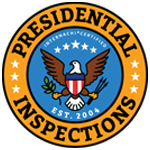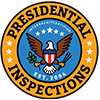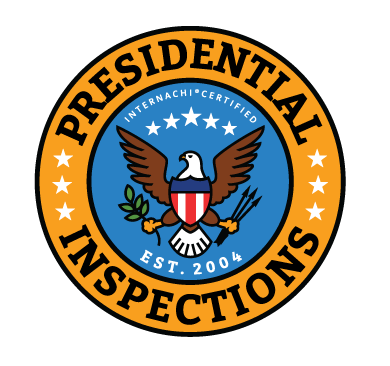Frequently Asked Inspection Questions
What is a Home Inspection?
A home inspection is an objective visual analysis of a home’s structure and systems. An inspection will determine the areas of a home that are not performing properly, as well as items that are beyond their useful life or are unsafe. Inspections include areas of the home’s interior and exterior, from the roof to the foundation and the exterior drainage and retaining walls. If problems or symptoms are found, the inspector may recommend further evaluation. A home inspection is a visual inspection to determine problems or conditions that exist at the time of the inspection. A home inspection is not a warranty. A warranty can be obtained separately.
Why do I Need a Home Inspection?
The purchase of a home is one of the largest purchases you will make. It is important that you know as much as possible about this purchase. A home inspector is trained to be able to evaluate the home in detail and give you a report that will allow you to make a good decision about purchasing the home. An inspection report will describe the home in detail and will highlight the areas that are problems. A home inspection is a good idea even if you are already a homeowner. We all get physical checkups – why not give your home a checkup? Many homeowners are living in homes that have serious problems that if identified early can save considerable repair costs. Water leaks can cause serious and costly problems, but if they are caught early can be repaired at little cost. A home inspection will also give you an outline of the routine maintenance that needs to be done to the home. Home sellers will want an inspection to find problems that a buyer’s inspection would have found. The seller can then make the repairs prior to the home going on the market.
What to look for a Home Inspector
Experience: Find out how much experience a potential inspector has. If an inspector has not been performing inspections very long that does not mean that he or she is not qualified, it just means that you will need to ask more questions.
Home Inspection Training: Has your inspector gone through any extensive training in home inspection? There are several training companies that provide hands-on training. Also, you may ask what other related experience the inspector has. Many inspectors have been in the building trades for several years and have considerable knowledge of home construction.
Association Membership: Is the inspector a member of a professional Home Inspection organization? Companies that are affiliated with professional organizations are serious about what they do, and they know about all the new developments in their fields. They are continually informed about changes in the building codes and city requirements.
- American Society of Home Inspectors (ASHI)
- National Association of Home Inspectors (NAHI)
- National Academy of Building Inspection Engineers (NABIE)
- California Real Estate Inspection Association (CREIA)
- National Institute of Building Inspectors (NIBI)
- National Association of Certified Home Inspectors (NACHI)
What does a Typical Home Inspection Include?
The home inspector’s report will review the condition of the home’s heating system, plumbing, electrical system and central air conditioning system (temperature permitting), as well as the roof, attic, visible insulation, walls, ceilings, floors, windows, doors, foundation, basement, landscaping, and visible structure.
What will a Typical Home Inspection Cost?
Each home inspection company has their own pricing structure. Inspection fees vary based on the area of the country and the type, size, and features of the home or building. Most inspectors will charge extra for services such as radon testing, termite inspections, well and septic inspections. A typical inspection fee for a 2,000 square foot home varies from $350 to $450. The cost of the inspection should not be the only consideration for hiring an inspector. A good inspection that informs you of all the potential problems in a home is worth the money. A bargain inspector may give you an inferior report. Once you have purchased the home, it may be very costly to repair problems that were omitted from the inspection report.
Can I do an Inspection Myself?
Most homebuyers will look at a home that they want to purchase and look for reasons to purchase the home. The prospective homebuyer is not able to look at the home with the unbiased critical eye of a home inspector. Even a homebuyer with construction experience does not have the knowledge and tools of a home inspector. A good inspector is trained and experienced in finding the clues in a home that indicate problems. These clues are sometimes very subtle and hard to find. Most inspectors use tools that help them determine problems. Most inspectors have performed hundreds of inspections, and they are familiar with problems with certain building materials or building styles.
When Purchasing a Home, When Should I Call for a Home Inspection?
When purchasing a home you will want to have the home inspected within a few days after the purchase agreement is signed. You want to make sure you have a clause in your purchase agreement that allows you to have an inspection and that you have the right to terminate the agreement if you find the home in unsatisfactory condition. This clause should specify the terms to which both the buyer and seller are obligated.
Should I be there During the Inspection?
We recommend that you are present at the inspection. Please allow approximately 3 hours for a thorough home inspection. Most inspectors will allow you to be there and ask questions after the inspection is completed. Most inspectors will point out the areas that are potential problems. This is important because you will be able to see for yourself the extent of problems that are sometimes hard for an inspector to convey in a report. Most inspectors will also show you how the heating system works and show you what things will need to be maintained in order to keep the home in good condition.
What if the Inspection Report Reveals Problems?
Almost all homes will show problems. Even newly constructed homes will have problems noted on an inspection report. This is why we recommend an inspection even for new construction. Your inspector will be able to identify major problems that will be costly. Minor problems are to be expected and can be repaired after closing. Major problems may require a negotiation between you and the seller as to how to fix the problems. A seller may adjust the purchase price or contract terms if major problems are found. If the problems are costly, you will be able to make your decision about purchasing the home with the proper knowledge about the future cost of that home.
Ready to Get Started?
Contact us for a quote!
Whether you’re looking to buy or sell a residential or commercial property, you need a trusted and reliable home inspector who can provide you with the information you need to make an informed decision.
We offer a range of services to meet your needs, including residential and commercial inspections, mold inspections, radon testing, and pest inspections. You can be confident that we will identify any issues that could impact the value, safety, or health of your property.
Don’t let unseen problems turn into costly headaches down the road – contact us today to schedule your inspection and get the peace of mind you deserve.


